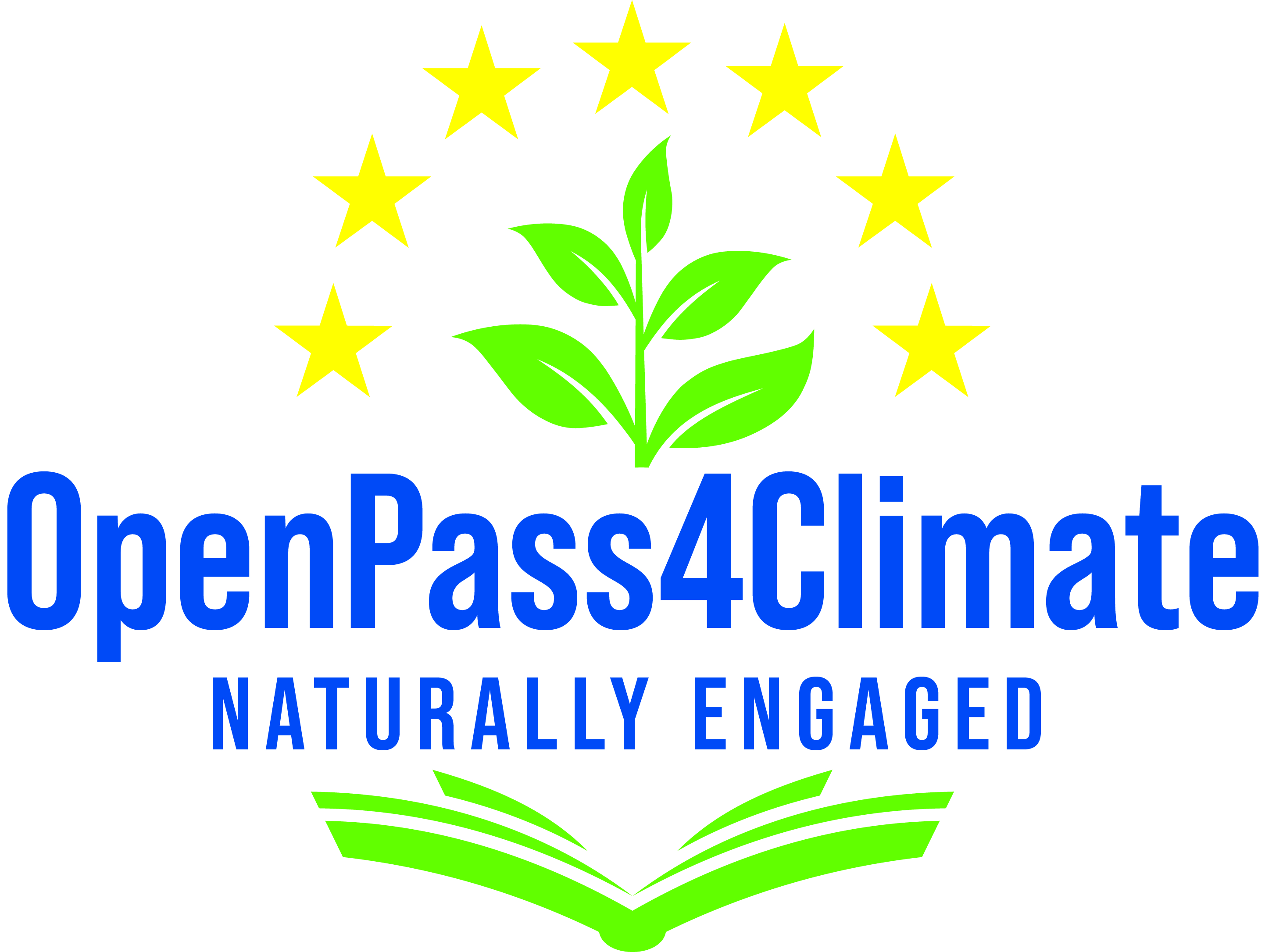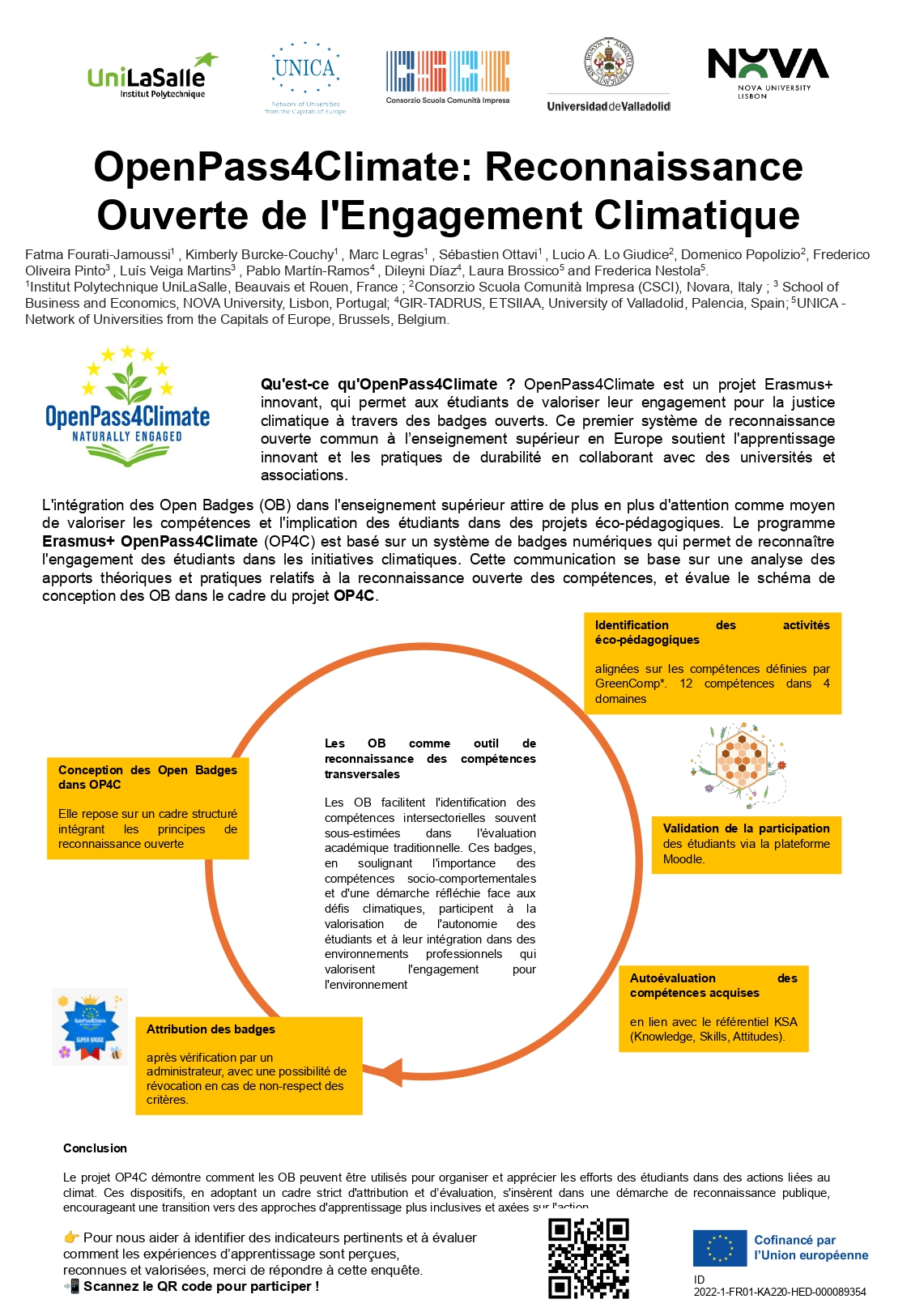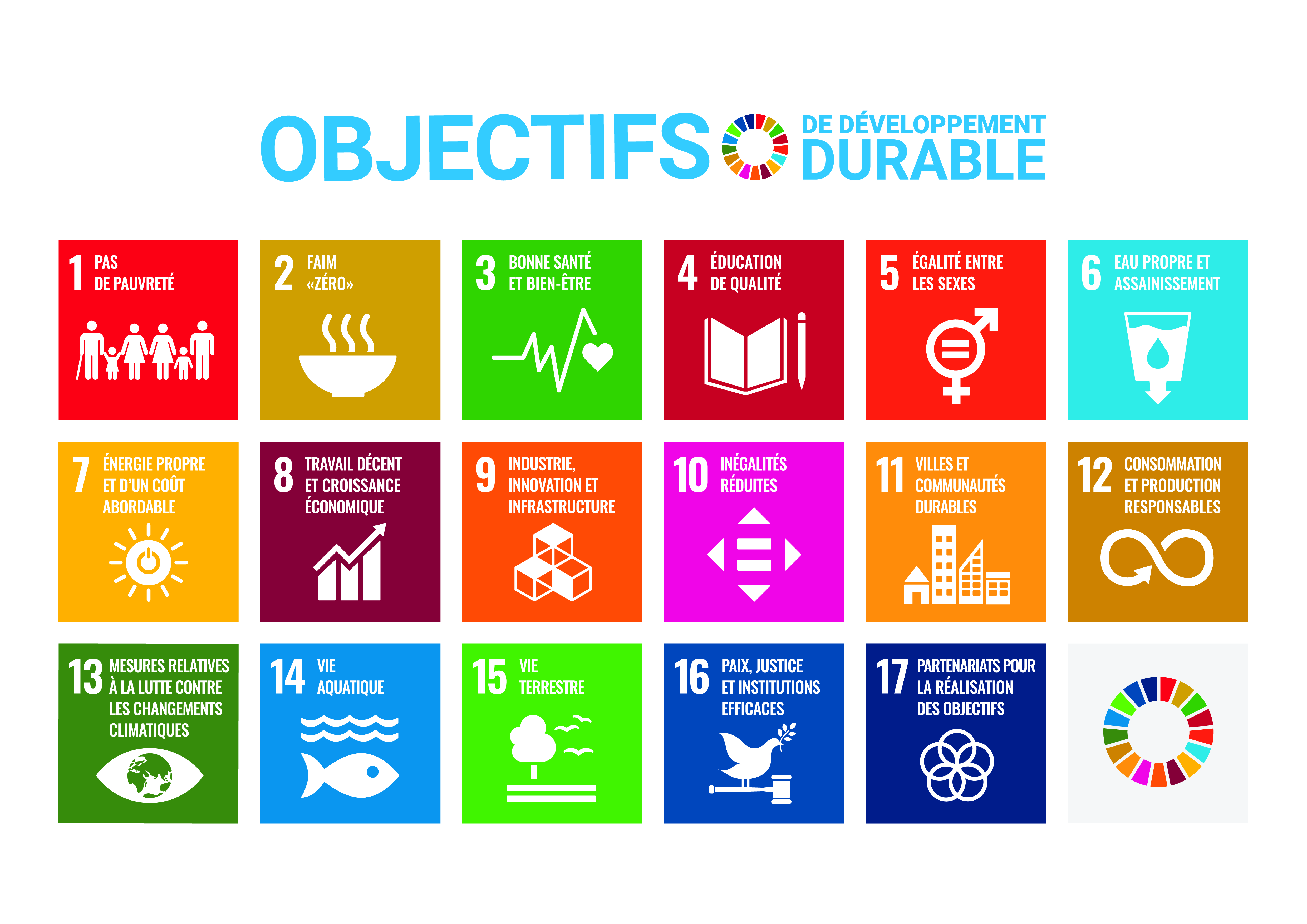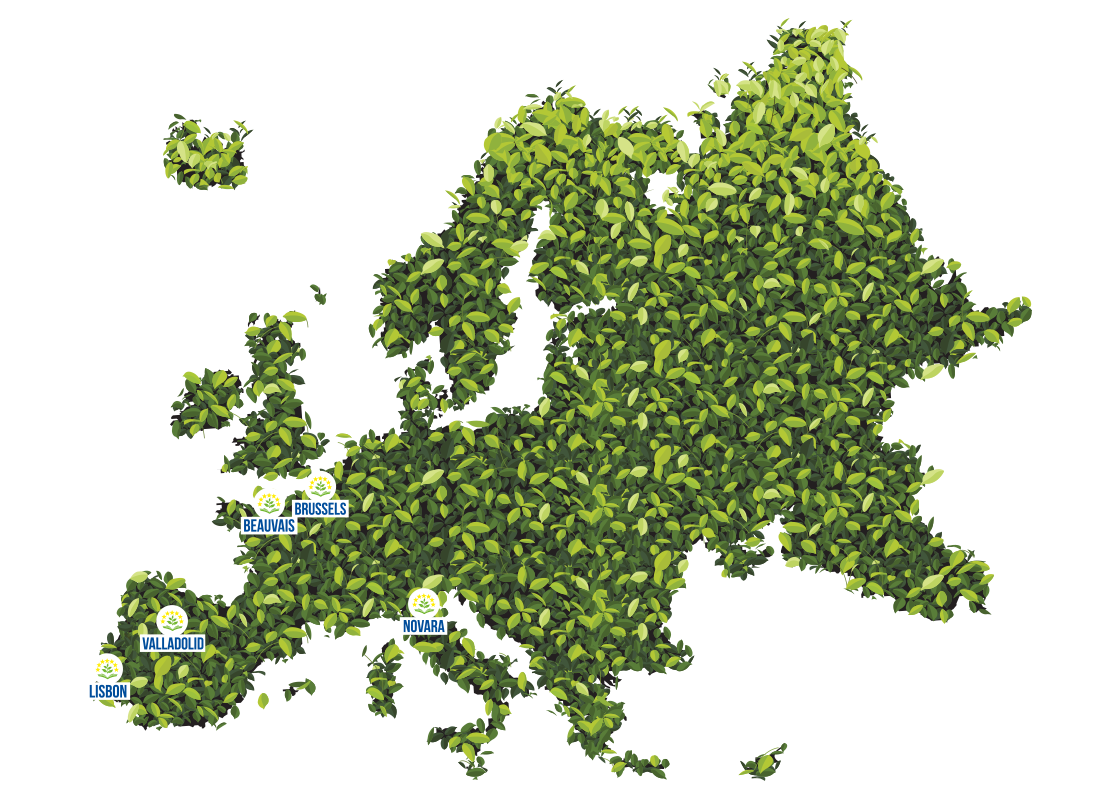
What is OpenPass4Climate?
OpenPass4Climate, “European Open Badge Passport for Climate,” is a project co-funded by the Erasmus+ program of the European Union under project ID 2022-1-FR01-KA220-HED-000089354.
This 36-month project officially began on November 1, 2022, and will end on October 31, 2025.
OpenPass4Climate aims to develop a multilingual European Open Badge Passport for Climate, available in Portuguese, Spanish, French, Italian, and English. This passport will enable the tracking and recognition of students' and citizens' commitment to climate education and action through digital Open Badges, portable, verifiable certifications that recognize climate-related skills, knowledge, competencies, and contributions.
Over a three-year period, the Consortium is building and testing a platform connecting learners to climate-focused activities across Europe, enabling them to earn badges and develop their climate skills. The goal is to provide every student entering university and high school with a Climate Passport that evolves throughout their academic and professional career, highlighting formal and informal learning in the field of climate.
What are the objectives of OpenPass4Climate?
OpenPass4Climate aims to raise awareness and mobilize universities, students, and communities around climate issues with a view to achieving carbon neutrality by 2050. To this end, the Consortium wishes to set up an open recognition system (Open Badges) to promote skills and commitments to sustainable development. OpenPass4Climate encourages eco-responsible behavior (green mobility, reduction of carbon footprint, sustainable consumption) and integrates ecological practices into all its activities to train actors of change.

Open Badges are digital images containing specific information. They are used by organizations or individuals to recognize a skill, commitment, contribution, project, interest, etc.
Each badge is associated with metadata that explains the nature of the recognition, the context in which it was awarded, and the performance or achievement criteria. Thanks to this information, Open Badges make it possible to showcase skills in a transparent and verifiable way.
Open Badges are used to encourage informal learning by offering an alternative to traditional diplomas and certificates.
The poster below provides an overview of Open Badges, highlighting their value and benefits in terms of skills recognition. Feel free to scan the QR code and fill out the questionnaire to help the OP4C project identify relevant indicators and assess perceptions of learning experiences.

Actions carried out during the project
Mapping of eco-educational activities (for each partner)
The OpenPass4Climate Consortium has mapped different types of eco-educational activities through a wide-ranging survey among its universities. This approach is inspired by the STARS (Sustainability Assessment & Rating System) framework.
The aim is to identify the diversity of activities implemented in order to inspire the public (students, teachers, etc.) to organize similar initiatives or develop new ones. These activities meet clearly identified sustainable development objectives. Below is a link to the list of initiatives, including eco-educational actions carried out at UniLaSalle and those implemented by other institutions in the Consortium.
Mapping of eco-pedagogical activities - PR1 - OpenPass4Climate

Internal courses
As part of the project, seven training activities are being organized, each focusing on specific aspects of the development and implementation of the planned actions. These training courses have been designed to promote real skill sharing between partners and ensure collective skill development within the consortium. Their participatory format aims to actively involve all members, regardless of their initial level of expertise or role in the project.
One of these training sessions aimed to test and improve the use of the Moodle platform for the creation of Open Badges. This session enabled participants to explore Moodle's features dedicated to the recognition of informal and non-formal skills. It led to practical experiments, exchanges of good practices, and the adaptation of tools to the specific needs of the project. This type of training not only helped to strengthen the technical capacities of the partners, but also fueled a joint reflection on how to assess and promote learners' achievements.

Focus group: testing the OP4C platform
As part of the project trial, focus groups are being organized with teachers, education professionals, and students. The aim of these meetings is to gather direct and varied feedback on the platform developed as part of the OpenPass4Climate project.
The focus groups enable several key aspects to be evaluated. First, they provide an initial assessment of the platform's accessibility and intuitiveness. Another key point addressed during these discussions is the badge system. The feedback helps to measure its effectiveness in terms of user motivation, as well as its potential as a tool for recognizing skills. Focus groups are also used to identify the most effective types of activities within the platform. Feedback highlights the activities that users find most engaging. Finally, these testing sessions give rise to suggestions for improvement: testers make suggestions to make the platform more suitable, more fluid, or better integrated with educational needs.
Platform and tutorial design
Throughout the project, the Consortium has been actively working on the creation and launch of the website, which will serve as a central platform for the rollout of the project on a larger scale.
In addition, tutorials have been created to help users get started with the platform, ensuring optimal and intuitive use.
View project results
Publication of articles in scientific journals
The research conducted as part of the project's development has resulted in the drafting of scientific articles. Some articles are currently being written, while others are in the publication phase. You will find a link to these articles here as soon as they become available.
OpenPass4Climate platform
The platform has been in testing since February, with feedback collected from students and teachers. If the tests are conclusive, the goal is to make the platform available online and accessible to everyone by the end of the year. The ambition is for it to be widely used by all universities, high schools, and other educational institutions.
A user guide has been developed to help users get started with the platform. Currently available internally, it will be made available to the public at the end of the project, once the content has been finalized and validated.
You can access the website presenting the OpenPass4Climate project by clicking here.
The OpenPass4Climate Consortium brings together five European institutions:
- Institut Polytechnique UniLaSalle (UniLaSalle), France - the coordinator
- UNICA - Network of Universities from the Capitals of Europe
- Consorzio Scuola Comunità Impresa - CSCI, Italy
- Universidade Nova de Lisboa, Portugal
- Universidad de Valladolid - OpenPass4Climate


*This project is co-funded by the European Union. However, the views and opinions expressed are those of the authors and do not necessarily reflect those of the European Union or the European Education and Culture Executive Agency (EACEA). Neither the European Union nor the EACEA can be held responsible for them.